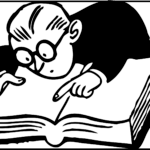Memorial Day Reading List: 12 Books To Check Out Now

To give you a deeper insight as to what these men and women go through, we thought we’d put together a list of must-read books. Here are 12 that we suggest you pick up right now along with synopsis and, when possible, memorable quotes courtesy of Goodreads.
In reality all have memorable quotes worth checking out, but the books themselves were not always handy. (What can we say, we’re gifters!) Special thanks to the social network for readers in providing the hard details. Let’s get started!
1. The Face of Battle by John Keegan
Synopsis: The Face of Battle is military history from the battlefield: a look at the direct experience of individuals at ‘the point of maximum danger’. It examines the physical conditions of fighting, the particular emotions and behaviour generated by battle, as well as the motives that impel soldiers to stand and fight rather than run away.
In his scrupulous reassessment of three battles, John Keegan vividly conveys their reality for the participants, whether facing the arrow cloud of Agincourt, the levelled muskets of Waterloo or the steel rain of the Somme.
Memorable Quote: “common soldier must fear his officer more than the enemy’: Frederick the Great)”
2. Once an Eagle by Anton Myrer
Synopsis: Once An Eagle is the story of one special man, a soldier named Sam Damon, and his adversary over a lifetime, fellow officer Courtney Massengale. Damon is a professional who puts duty, honor, and the men he commands above self interest. Massengale, however, brilliantly advances by making the right connections behind the lines and in Washington’s corridors of power.
Beginning in the French countryside during the Great War, the conflict between these adversaries solidifies in the isolated garrison life marking peacetime, intensifies in the deadly Pacific jungles of World War 11, and reaches its treacherous conclusion in the last major battleground of the Cold War — Vietnam.
A study in character and values, courage, nobility, honesty, and selflessness, here is an unforgettable story about a man who embdies the best in our nation — and in us all.
Memorable Quote: “That’s the whole challenge of life – to act with honor and hope and generosity, no whatter what you’ve drawn. You can’t help when or what you were born, you may not be able to help how you die; but you can – and you should – try to pass the days between as a good man.”
3. On Killing: The Psychological Cost of Learning to Kill in War and Society by Lt. Col. Dave Grossman
Synopsis: The twentieth century, with its bloody world wars, revolutions, and genocides accounting for hundreds of millions dead, would seem to prove that human beings are incredibly vicious predators and that killing is as natural as eating.
But Lieutenant Colonel Dave Grossman, a psychologist and U.S. Army Ranger, demonstrates this is not the case. The good news, according to Grossman – drawing on dozens of interviews, first-person reports, and historic studies of combat, ranging from Frederick the Great’s battles in the eighteenth century through Vietnam – is that the vast majority of soldiers are loath to kill.
In World War II, for instance, only 15 to 25 percent of combat infantry were willing to fire their rifles. The provocative news is that modern armies, using Pavlovian and operant conditioning, have learned how to overcome this reluctance.
In Korea about 50 percent of combat infantry were willing to shoot, and in Vietnam the figure rose to over 90 percent.
The bad news is that by conditioning soldiers to overcome their instinctive loathing of killing, we have drastically increased post-combat stress – witness the devastated psychological state of our Vietnam vets as compared with those from earlier wars. And the truly terrible news is that contemporary civilian society, particularly the media, replicates the army’s conditioning techniques and – according to Grossman’s controversial thesis – is responsible for our rising rates of murder and violence, particularly among the young.
In the explosive last section of the book, he argues that high-body-count movies, television violence (both news and entertainment), and interactive point-and-shoot video games are dangerously similar to the training programs that dehumanize the enemy, desensitize soldiers to the psychological ramifications of killing, and make pulling the trigger an automatic response.
Memorable Quote: “Some psychiatric casualties have always been associated with war, but it was only in the twentieth century that our physical and logistical capability to sustain combat outstripped our psychological capacity to endure it.”
4. Dereliction of Duty: Johnson, McNamara, the Joint Chiefs of Staff, and the Lies That Led to Vietnam by H.R. McMaster
Synopsis: Dereliction Of Duty is a stunning new analysis of how and why the United States became involved in an all-out and disastrous war in Southeast Asia. Fully and convincingly researched, based on recently released transcripts and personal accounts of crucial meetings, confrontations and decisions, it is the only book that fully re-creates what happened and why. It also pinpoints the policies and decisions that got the United States into the morass and reveals who made these decisions and the motives behind them, disproving the published theories of other historians and excuses of the participants.
Dereliction Of Duty covers the story in strong narrative fashion, focusing on a fascinating cast of characters: President Lyndon Johnson, Robert McNamara, General Maxwell Taylor, McGeorge Bundy and other top aides who deliberately deceived the Joint Chiefs of Staff, the U.S. Congress and the American public.
Sure to generate controversy, Dereliction Of Duty is an explosive and authoritative new look at the controversy concerning the United States involvement in Vietnam.
Memorable Quote: “The war in Vietnam was not lost in the field, nor was it lost on the front pages of the New York Timesor the college campuses. It was lost in Washington, D.C.”
5. Civil War Stories by Ambrose Bierce
Synopsis: Newspaperman, short-story writer, poet, and satirist, Ambrose Bierce (1842–1914) is one of the most striking and unusual literary figures America has produced. Dubbed “Bitter Bierce” for his vitriolic wit and biting satire, his fame rests largely on a celebrated compilation of barbed epigrams, The Devil’s Dictionary, and a book of short stories (Tales of Soldiers and Civilians, 1891). Most of the 16 selections in this volume have been taken from the latter collection.
The stories in this edition include: “What I Saw at Shiloh,” “A Son of the Gods,” “Four Days in Dixie,” “One of the Missing,” “A Horseman in the Sky,” “The Coup de Grace,” “An Occurrence at Owl Creek Bridge,” “The Story of Conscience,” “One Kind of Officer,” “Chickamauga,” and five more.
Bierce’s stories employ a buildup of suggestive realistic detail to produce grim and vivid tales often disturbing in their mood of fatalism and impending calamity. Hauntingly suggestive, they offer excellent examples of the author’s dark pessimism and storytelling power.
6. Company K by William March
Synopsis: This book was originally published in 1933. It is the first novel by William March, pen name for William Edward Campbell. Stemming directly from the author’s experiences with the U.S. Marines in France during World War I, the book consists of 113 sketches, or chapters, tracing the fictional Company K’s war exploits and providing an emotional history of the men of the company that extends beyond the boundaries of the war itself.
William Edward Campbell served courageously in France as evidenced by his chestful of medals and certificates, including the Croix de Guerre, the Distinguished Service Cross, and the Navy Cross. However, without the medals and citations we would know of his bravery. For it is clear in the pages of Company K that this book was written by a man who had been to war, who had clearly seen his share of the worst of it, who had somehow survived, and who had committed himself afterward to the new bravery of sense-making embodied in the creation of major literary art. It is of that bravery that we still have the record of magnificent achievement, the brave terrible gift of Company K.
7. The Liberator: One World War II Soldier’s 500-Day Odyssey from the Beaches of Sicily to the Gates of Dachau by Alex Kershaw
Synopsis: The riveting true story of the bloodiest and most dramatic march to victory of the Second World War, following the battlefield odyssey of a maverick U.S. Army officer and his infantry unit as they fought from the invasion of Italy to the liberation of Dachau at war’s end.
From July 10, 1943, the date of the Allied landing in Sicily, to May 8, 1945, when victory in Europe was declared-roughly 500 days-no regiment saw more action, and no single platoon, company, or battalion endured worse, than the one commanded by Felix Sparks, a greenhorn second lieutenant when The Liberator begins. Historian Alex Kershaw vividly portrays the immense courage and stamina of Sparks and his men as they fought terrifying engagements against Hitler’s finest troops in Sicily and Salerno and as they endured attack after attack on the beaches of Anzio (with Sparks miraculously emerging as his 200-man company’s sole survivor). In the bloody battle for southern France, Sparks led his reconstituted unit into action against superbly equipped and trained die-hard SS troops and demonstrated how the difference between defeat and victory would be a matter of character, not tactics or hardware. Finally, he and his men were ordered to liberate Dachau, the Nazis’ first concentration camp. It would be their greatest challenge, a soul-searing test of their humanity.
Memorable Quote: “His only realistic hope of survival was to order his own artillery to fire on his positions to stall the German attack. Some of his own men might be killed, but “pulling the chain,” as it was called, was his only option.”
“The content of your character is your choice. Day by day, what you choose, what you think, what you do—is who you become. Your integrity is your destiny … it is the light that guides your way. —HERACLITUS”
8. Helmet for My Pillow: From Parris Island to the Pacific, A Marine Tells His Story by Robert Leckie
Synopsis: Here is one of the most riveting first-person accounts to ever come out of the Second World War. Robert Leckie was 21 when he enlisted in the US Marine Corps in January 1942. In Helmet for My Pillow we follow his journey, from boot camp on Parris Island, South Carolina, all the way to the raging battles in the Pacific, where some of the war’s fiercest fighting took place. Recounting his service with the 1st Marine Division and the brutal action on Guadalcanal, New Britain and Peleliu, Leckie spares no detail of the horrors and sacrifice of war, painting an unsentimental portrait of how real warriors are made, fight, and all too often die in the defence of their country.
From the live-for-today rowdiness of Marines on leave to the terrors of jungle warfare against an enemy determined to fight to the last man, Leckie describes what it’s really like when victory can only be measured inch by bloody inch. Unparalleled in its immediacy and accuracy, Helmet for My Pillow is a gripping account from an ordinary soldier fighting in extraordinary conditions. This is a book that brings you as close to the mud, the blood, and the experience of war as it is safe to come.
Memorable Quote: “And now to that Victim whose Sign rose above the world two thousand years ago, to be menaced now by that other sign now rising, I say a prayer of contrition. I, whom you have seen as irreverent and irreligious, now pray in the name of Chuckler and Hoosier and Runner, in the name of Smoothface, Gentlemen, Amish, and Oakstump, Ivy-League and Big-Picture, in the name of all those who suffered in the jungles and on the beaches, from Anzio to Normandy–and in the name of the immolated: of Texan, Rutherford, Chicken, Loudmouth, of the Artist and White-Man, Souvenirs and Racehorse, Dreadnought and Commando–of all these and the others, dear Father, forgive us for that awful cloud.”
9. American Patriot: The Life and Wars of Colonel Bud Day by Robert Coram
Synopsis: During the course of his military career, Bud Day won every available combat medal, escaped death on no less than seven occasions, and spent 67 months as a POW in the infamous Hanoi Hilton, along with John McCain. Despite sustained torture, Day would not break. He became a hero to POWs everywhere–a man who fought without pause, not a prisoner of war, but a prisoner at war.
Upon his return, passed over for promotion to Brigadier General, Day retired. But years later, with his children grown and a lifetime of service to his country behind him, he would engage in another battle, this one against an opponent he never had expected: his own country. On his side would be the hundreds of thousands of veterans who had fought for America only to be betrayed. And what would happen next would make Bud Day an even greater legend.
10. A Rumor of War by Philip Caputo
Synopsis: In March 1965, Marine Lieutnant Philip J. Caputo landed in Danang with the first ground combat unit committed to fight in Vietnam. Sixteen months later, having served on the line in one of modern history’s ugliest wars, he returned home – physically whole, emotionally wasted, his youthful idealism shattered. A decade later, Caputo would write in A Rumor of War, ‘This is simply a story about war, about the things men do in war and the things war does to them’.
It is far more then that. It is, as Theodore Solotaroff wrote in the New York Times Book Review, ‘the troubled conscience of America speaking passionately, truthfully, finally’. It is the book that shattered America’s deliberate indifference to the fate of the men it sent to fight in the jungles of Vietnam, and in the years since it was first published it has become a basic text on that war. But in the literature of war that stretches back to Homer, it has also taken its place as an esteemed classic to rank alongside All Quiet on the Western Front and The Naked and the Dead.
Memorable Quote: “I saw their living mouths moving in conversation and their dead mouths grinning the taut-drawn grins of corpses. Their living eyes I saw, and their dead eyes still-staring. Had it not been for the fear that I was going crazy, I would have found it an interesting experience, a trip such as no drug could possibly produce. Asleep and dreaming, I saw dead men living; awake, I saw living men dead.”
11. Where Men Win Glory: The Odyssey of Pat Tillman by Jon Krakauer
Synopsis: Like the men whose epic stories Jon Krakauer has told in his previous bestsellers, Pat Tillman was an irrepressible individualist and iconoclast. In May 2002, Tillman walked away from his $3.6 million NFL contract to enlist in the United States Army. He was deeply troubled by 9/11, and he felt a strong moral obligation to join the fight against al-Qaeda and the Taliban. Two years later, he died on a desolate hillside in southeastern Afghanistan.
Though obvious to most of the two dozen soldiers on the scene that a ranger in Tillman’s own platoon had fired the fatal shots, the Army aggressively maneuvered to keep this information from Tillman’s wife, other family members, and the American public for five weeks following his death. During this time, President Bush repeatedly invoked Tillman’s name to promote his administration’s foreign policy. Long after Tillman’s nationally televised memorial service, the Army grudgingly notified his closest relatives that he had “probably” been killed by friendly fire while it continued to dissemble about the details of his death and who was responsible.
In Where Men Win Glory, Jon Krakauer draws on Tillman’s journals and letters, interviews with his wife and friends, conversations with the soldiers who served alongside him, and extensive research on the ground in Afghanistan to render an intricate mosaic of this driven, complex, and uncommonly compelling figure as well as the definitive account of the events and actions that led to his death. Before he enlisted in the army, Tillman was familiar to sports aficionados as an undersized, overachieving Arizona Cardinals safety whose virtuosity in the defensive backfield was spellbinding. With his shoulder-length hair, outspoken views, and boundless intellectual curiosity, Tillman was considered a maverick. America was fascinated when he traded the bright lights and riches of the NFL for boot camp and a buzz cut. Sent first to Iraq—a war he would openly declare was “illegal as hell”—and eventually to Afghanistan, Tillman was driven by complicated, emotionally charged, sometimes contradictory notions of duty, honor, justice, patriotism, and masculine pride, and he was determined to serve his entire three-year commitment. But on April 22, 2004, his life would end in a barrage of bullets fired by his fellow soldiers.
Krakauer chronicles Tillman’s riveting, tragic odyssey in engrossing detail highlighting his remarkable character and personality while closely examining the murky, heartbreaking circumstances of his death. Infused with the power and authenticity readers have come to expect from Krakauer’s storytelling, Where Men Win Glory exposes shattering truths about men and war.
Memorable Quote: “the sad end he met in Afghanistan was more accurately a function of his stubborn idealism–his insistence on trying to do the right thing. In which case it wasn’t a tragic flaw that brought Tillman down, but a tragic virtue.”
12. Thank You for Your Service by David Finkel
Synopsis: No journalist has reckoned with the psychology of war as intimately as David Finkel. In The Good Soldiers, Finkel shadowed the men of the US 2-16 Infantry Battalion in Baghdad as they carried out the grueling fifteen-month “surge” that changed them all forever. Now Finkel has followed many of the same men as they’ve returned home and struggled to reintegrate – both into their family lives and into society at large.
In the ironically titled Thank You for Your Service, Finkel writes with tremendous compassion not just about the soldiers but about their wives and children. Where do soldiers belong after their homecoming? Is it reasonable, or even possible, to expect them to rejoin their communities as if nothing has happened? And in moments of hardship, who can soldiers turn to if they feel alienated by the world they once lived in? These are the questions Finkel faces as he revisits the brave but shaken men of the 2-16.
More than a work of journalism, Thank You for Your Service is an act of understanding — shocking but always riveting, unflinching but deeply humane, it takes us inside the heads of those who must live the rest of their lives with the realities of war.
Memorable Quote: “And a hero isn’t someone who doesn’t feel fear, they’re someone who in spite of their fear does the right thing and really risks their own safety,”
Closing thoughts on Memorial Day
Whether you are in the military or not, you have to appreciate the sacrifice of so many, and part of that appreciation understands what they’ve gone through. The books above are a good start when understanding the humanity behind their decisions. Check them out when you have a chance, and to those who’ve served and those who’ve died or been forever changed by that service, we salute you.
[Featured Image by Mental Floss]








